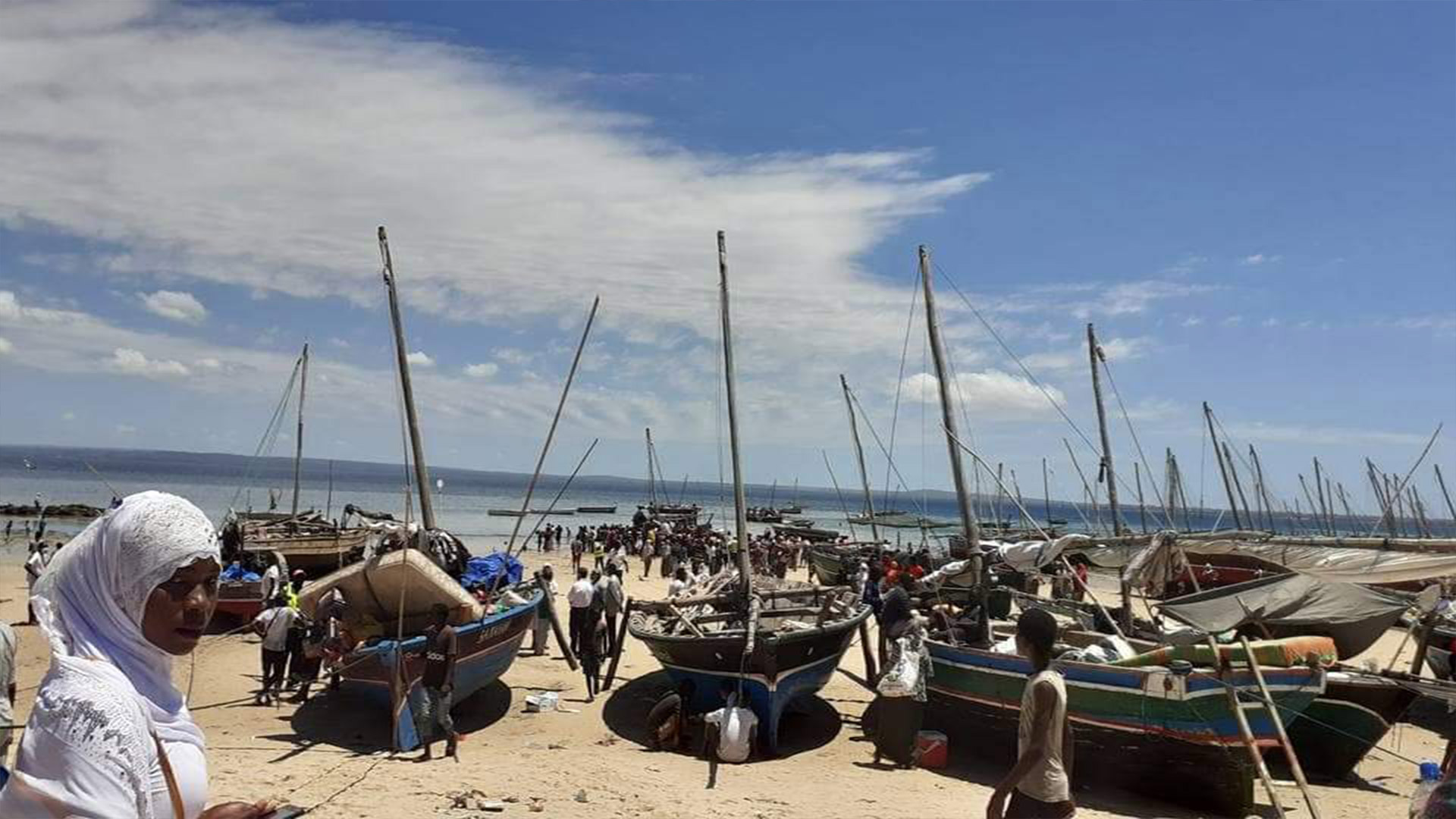Since the end of 2017, the Province of Cabo Delgado, in Northern Mozambique, has suffered from armed attacks carried out by a group of mostly young men. These attacks occur in districts close to the natural gas exploration project areas.
In addition, the Pemba region, the capital of the Cabo Delgado province, experienced an emergency situation in April 2019, resulting from cyclone Kenneth category 3. It was estimated in October 2020 that the number of displaced people reached more than 360.000, particularly in the City of Pemba, which received an average of 1,500 displaced people per day.
COVID-19, the new coronavirus, represents an even more significant challenge in dealing with the growing number of internally displaced persons. This situation further intensified the socio-political and economic problem in the province, as people left their lands, where they made their living, to live with family members in houses where were registered an average of 20 to 30 people in the same environment, which promotes the spread of the virus.
This “perfect storm” affects an already struggling region, as Mozambique is one of the least developed countries in the world – ranked 180 out of 189 on the Human Development Index, and Cabo Delgado is one of the poorest provinces in the country.
Internally displaced people lack the basics for survival: food, shelter, water, sanitation, psychosocial support, and protection. Despite the great need, some organizations operating in the province have reduced or suspended their action due to insecurity.
In response to the appeal by the Bishop of Pemba, D. Luiz Fernando Lisboa, who called dioceses, communities, non-governmental organizations, and other civil society institutions to support the deprived population of the Province of Cabo Delgado, Associação Moçambicana de Educadores Lassalistas (AMEL*) has decided to join the ongoing inter-congregational efforts and support the Diocese of Pemba, in synergy with the living forces of society, to respond to the basic needs of the affected families.
This new endeavour of AMEL aligns with its Lasallian values. AMEL is working with De La Salle Solidarietà Internazionale to raise funds to support the humanitarian work in the region, which mainly focuses on three areas: nutrition, sanitation, and psychosocial support and protection.
*AMEL: There has been a Lasallian presence in the country since 1992 and it is well known in Beira, Province of Sofala, as the Mozambican Association of Lasallian Educators (AMEL). AMEL contributes to SDG nr 4 Quality Education for All, especially focusing on marginalised children and youth, successfully promoting children’s rights as an essential cross-cutting issue.
Concretely its action articulates along three lines:
(a) Formal education (1st – 12th grade) for over 3300 boys and girls every day;
(b) Teacher training, in particular, targeting the non-qualified teachers working in rural areas and low-skilled high school teachers;
(c) Technical and pedagogical support to over a thousand vulnerable children and youth, for their retention in education and empowerment.



